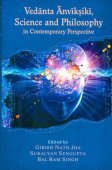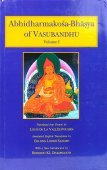Metaphysics: 2 definitions
Introduction:
Metaphysics means something in Hinduism, Sanskrit. If you want to know the exact meaning, history, etymology or English translation of this term then check out the descriptions on this page. Add your comment or reference to a book if you want to contribute to this summary article.
In Hinduism
Shaivism (Shaiva philosophy)
Source: SOAS University of London: Protective Rites in the Netra TantraMetaphysics refers to a one of the topics discussed in the Netratantra of Kṣemarāja: a Śaiva text from the 9th century in which Śiva (Bhairava) teaches Pārvatī.—Chapter One focuses on the mantras and forms used in the worship of Amṛteśa, the main deity of the Netra Tantra. The Netra Tantra is a scripture of divine revelation that consists of a dialogue between Bhairava and Pārvatī, in which the former instructs the latter on metaphysics, cosmology, and soteriology.

Shaiva (शैव, śaiva) or Shaivism (śaivism) represents a tradition of Hinduism worshiping Shiva as the supreme being. Closely related to Shaktism, Shaiva literature includes a range of scriptures, including Tantras, while the root of this tradition may be traced back to the ancient Vedas.
Yoga (school of philosophy)
Source: ORA: Amanaska (king of all yogas): A Critical Edition and Annotated Translation by Jason BirchMetaphysics and associated practices are rejected by the Amanaska Yoga treatise.—The Amanaska replaced the graduated systems of yoga, usually consisting of various auxiliaries, with one technique called Śāmbhavī Mudrā and the practice of Samādhi. Indeed, the Amanaska’s rejection of the auxiliaries of Yoga, complex metaphysics and philosophical systems, mantras, Brahmanical and non-Brahmanical asceticism, the cremation-ground practices of the Kāpālikas and sect-identifying signs, distinguish it markedly from pre-tenth century CE Pātañjala and Tantric Yoga.

Yoga is originally considered a branch of Hindu philosophy (astika), but both ancient and modern Yoga combine the physical, mental and spiritual. Yoga teaches various physical techniques also known as āsanas (postures), used for various purposes (eg., meditation, contemplation, relaxation).
See also (Relevant definitions)
Full-text (+1692): Anvikshiki, Abhidhamma, Abhidharmapitaka, Arthanaya, Turiyavastha, Nadasthana, Karanahasuge, Ahampadartha, Avatara, Apitarmapitakam, Tatvatmaka, Tattuvacastiram, Upanichads, Tattva, Vedantavidya, Vyasta, Karmagranthi, Adhyatma, Prashastapadabhashya, Nyayasutraddhara.
Relevant text
Search found 107 books and stories containing Metaphysics; (plurals include: Metaphysicses). You can also click to the full overview containing English textual excerpts. Below are direct links for the most relevant articles:
Jain Science and Spirituality (by Medhavi Jain)
5.1. Metaphysics (Introduction) < [Chapter 5 - Science in Jainism]
5.7. Metaphysics, Knowledge and Perception < [Chapter 5 - Science in Jainism]
5.4. Metaphysics, Ethics, Cause and Effect < [Chapter 5 - Science in Jainism]
Anumana in Indian Philosophy (by Sangita Chakravarty)
(C). Epistemology in Indian Philosophy < [Chapter 1 - Introduction]
Vedic schools (3): The Mīmāṃsā-Vedānta < [Chapter 1 - Introduction]
Vedic schools (1): The Nyāya-Vaiśeṣika < [Chapter 1 - Introduction]
Prasthanatrayi Swaminarayan Bhashyam (Study) (by Sadhu Gyanananddas)
Metaphysics and Svāminārāyaṇa’s perspective < [Chapter 3 - Analysis on the Basis of Metaphysics]
Introduction (spirituality and philosophy) < [Chapter 4 - Analysis on the Basis of Spiritual Endeavour]
5.3. The Knower-known-knowing < [Chapter 2 - Analysis on the Basis Of Epistemology]
The Fourteenth Indian Philosophical Congress < [Jan - Feb 1939]
The Dewan < [October – December, 1979]
The use of myth in Raja Rao’s “The Serpent and the Rope” < [July – September 1991]
A study of the philosophy of Jainism (by Deepa Baruah)
Dhyana in the Buddhist Literature (by Truong Thi Thuy La)
3.2 (c): The Dhyāna in the Avataṃsaka-sūtra (Hua-Yen) < [Chapter 3 - The Dhyāna in Mahāyāna Literature]
3.1 (a): The History of Mahāyāna Buddhism < [Chapter 3 - The Dhyāna in Mahāyāna Literature]
Related products



